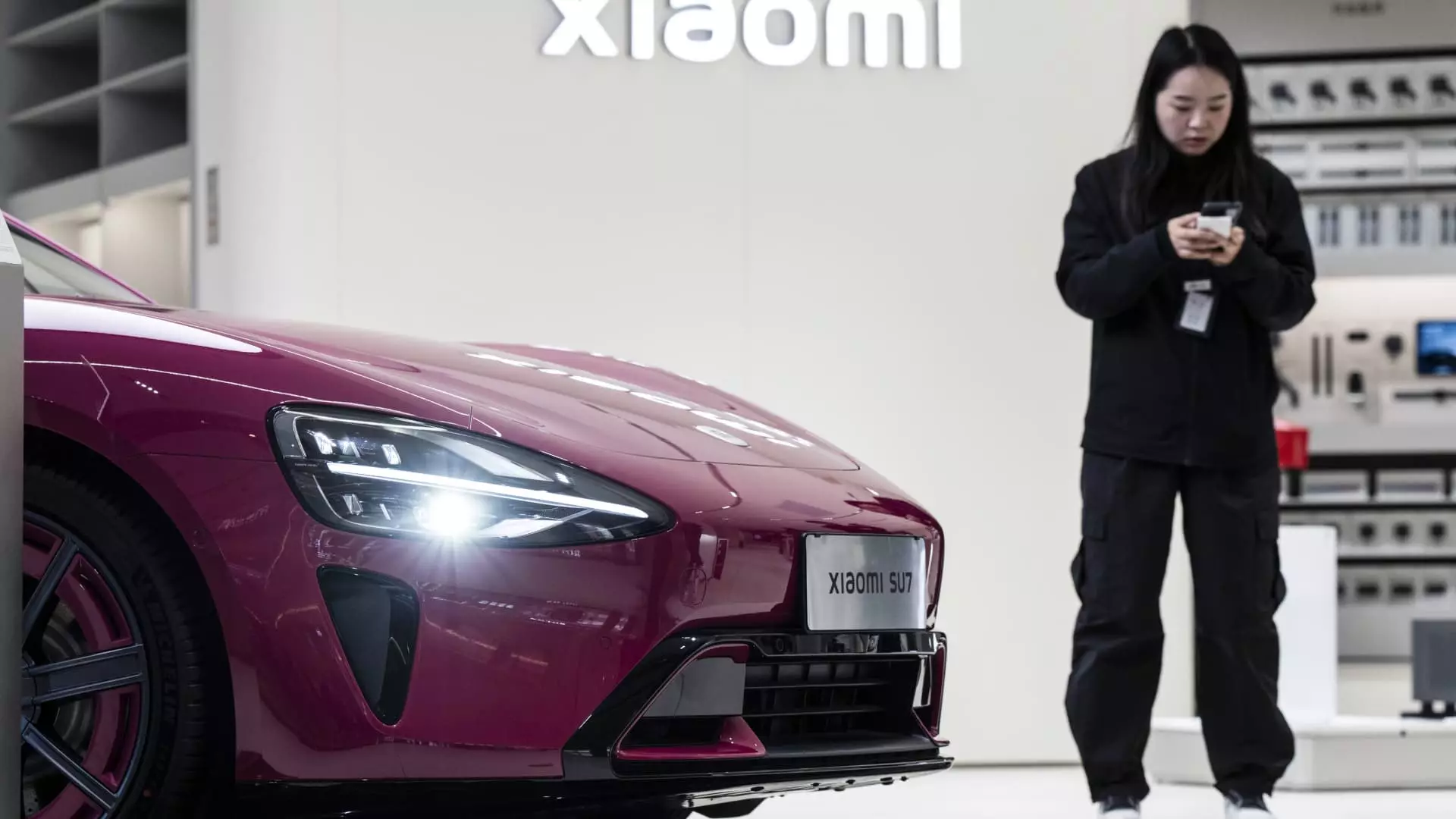March was a landmark month for several Chinese electric vehicle (EV) manufacturers, with Xiaomi, Xpeng, and Leapmotor each surpassing the 30,000 mark in vehicle deliveries—a significant achievement that illustrates their growing dominance in an increasingly competitive market. Xiaomi alone delivered a staggering 29,000 units, breaking its previous record of maintaining over 20,000 deliveries per month for five consecutive months. Meanwhile, Leapmotor surpassed all with 37,095 vehicles delivered, showcasing a robust year-over-year growth of 154%. These numbers paint a picture of a flourishing industry that, while experiencing remarkable highs, is also grappling with unsettling lows.
However, this surge in production and sales is not without its complexities. The industry is currently witnessing an intense tug-of-war among startups, with many still struggling to break the 20,000-unit threshold, making the achievements of Xiaomi and its peers all the more noteworthy. Despite this triumph, the pressure to innovate and maintain consumer trust looms large, especially in light of recent incidents.
The Dark Shadow of Tragedy
Looming over the optimistic delivery figures is the tragic accident involving Xiaomi’s flagship model, the SU7, which resulted in the loss of three lives due to a crash while the vehicle was allegedly operating in autopilot mode. This heartbreaking event serves as a grim reminder of the challenges that electric vehicle manufacturers face as they navigate the intersection of advanced technology and public safety. While Xiaomi has publicly acknowledged the incident and initiated an internal investigation, the psychological impact on consumer behavior is significant. Are consumers willing to embrace groundbreaking technology when its reliability is called into question, especially in life-or-death situations?
The company announced ambitions to deliver 350,000 vehicles this year, which raises the stakes even higher. Without consumer confidence, these goals may become elusive. Therefore, the question arises: Can the exciting technological advancements and the potential for a greener future outweigh the fears and reservations that come with such technologies?
The Competitive Landscape: BYD’s Unrivaled Lead
While newer entrants to the market like Xiaomi and Xpeng bask in their recent accolades, BYD continues to reign supreme in the electric vehicle space. The company sold an astonishing 371,419 vehicles in March alone, marking a substantial 57.9% year-over-year growth. BYD’s advancements in technology, including the unveiling of its “Super e-Platform” that boasts remarkable range and rapid charging capabilities, solidifies its position as a formidable player.
Moreover, the company’s initiatives, such as integrating advanced driver-assistance systems through developments like the “DiPilot,” put BYD at the forefront of not just production but innovation within the sector. This relentless drive for technological advancement is crucial as other manufacturers strive to catch up, and it presents an essential lesson: in a rapidly evolving market, standing still is not an option.
Struggles for Established Brands
Even as new players emerge, traditional carmakers have their own battles to wage. Tesla reported a disheartening 11.5% decline in year-over-year growth of vehicle sales in China, selling 78,828 units in March. Similarly, other fledgling companies, such as Nio and Li Auto, revealed weaker growth metrics despite minor upticks in figures. Nio, for example, achieved only 15,039 deliveries, showcasing how even companies with significant market presence can falter in the face of fierce contention.
As these electric vehicle brands navigate the tumultuous landscape, it begs an important inquiry: are the legacy brands capable of adapting to the shifting tides, or are they destined to become dinosaurs in an era characterized by rapid innovation and change?
The Consumer’s Dilemma
For consumers, the accelerating advancements and increasing options in the market bring forth a paradox. While they benefit from greater choices and improved technology, incidents like the Xiaomi crash raise critical questions about safety and reliability. Can consumers reconcile the allure of cutting-edge technology with the inherent risks it may pose? Are they prepared to take the leap into a future where electric vehicles dominate the road, or will they remain hesitant due to fear of the unknown?
As each manufacturer strives for a slice of the lucrative electric vehicle pie, the ongoing balancing act between innovation, safety, and consumer trust will shape the industry’s trajectory for years to come. The road to revolutionizing the automotive sector is fraught with challenges, and how these companies respond will invariably determine not just their success, but the future of transportation itself.

